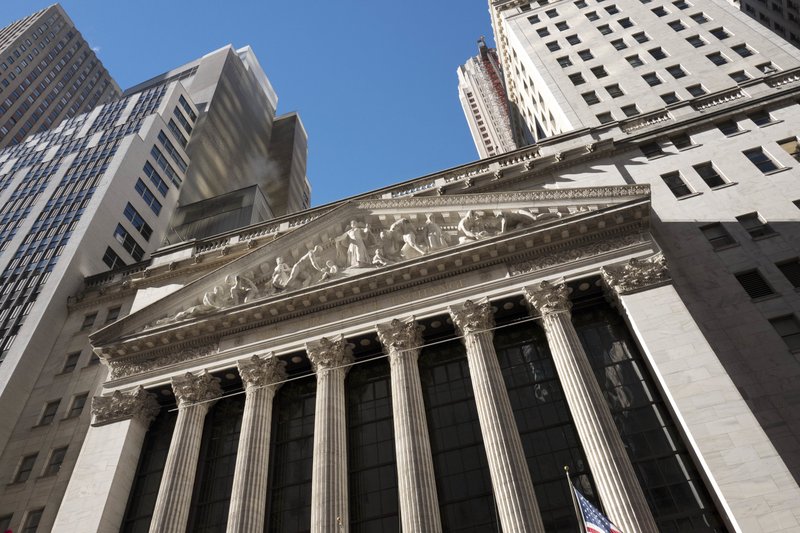NEW YORK -- U.S. stock indexes fell Friday after President Donald Trump said he may intensify his trade battle with China. A strong jobs report also pushed investors to gird for higher interest rates.
The S&P 500 bounced between modest gains and losses in an up-and-down day, but its most decisive move was downward after Trump said he's ready to impose tariffs on essentially every good that's imported from China. That helped push the S&P 500 to its fourth-straight loss.
The S&P 500 lost 6.37 points, or 0.2 percent, to 2,871.68 and closed out just its second down week in the last 10. The Dow Jones industrial average lost 79.33, or 0.3 percent, to 25,916.54, and the Nasdaq composite fell 20.18, or 0.3 percent, to 7,902.54.
Earlier in the day, the government's monthly jobs report showed that hiring and workers' wage gains were healthier than expected in August. It's the latest evidence that the U.S. economy continues to power ahead, and it clears the way for the Federal Reserve to raise short-term interest rates at its meeting later this month and beyond. Treasury yields jumped in response.
With the economy so strong and corporate profits so high, stock prices would likely be even higher than they are today if not for investors' worries about global trade, said David Joy, chief market strategist at Ameriprise Financial.
The United States has already imposed tariffs on $50 billion in Chinese imports, with Beijing quickly following suit, and investors worry about how high the total will rise. The concern is that escalating tariffs will drag down corporate profits and economic growth.
Trump told reporters Friday that "to a certain extent, it's going to be up to China." He also said that he's prepared to impose tariffs on an additional $267 billion of Chinese imports, which would be on top of tariffs already being considered on $200 billion of Chinese goods. The S&P 500 quickly fell about 0.3 percent after Trump made his comments.
"The underlying fundamentals of the economy are still quite healthy, but the longer this goes, the more destructive it's going to be for supply chains," said Joy.
Further evidence about those fundamentals came from Fridays' jobs report, which showed employers hired more workers last month than economists expected, and the unemployment rate remained near an 18-year low. That helped push up the average hourly wage by 2.9 percent from a year earlier, the fastest growth in eight years.
If wage gains keep accelerating, it could feed into higher inflation throughout the economy. That in turn could push the Fed to get more aggressive about raising rates, something it has pledged to do slowly and steadily.
Higher interest rates can hurt stock prices because they make bonds look more attractive. The market went through a similar scenario in February, when the monthly jobs report showed a surprisingly big increase in wages.
Business on 09/08/2018
